
Whitehill Former Pupils’ Club

Made With Serif WebPlus.


|
Famous Former Pupils |
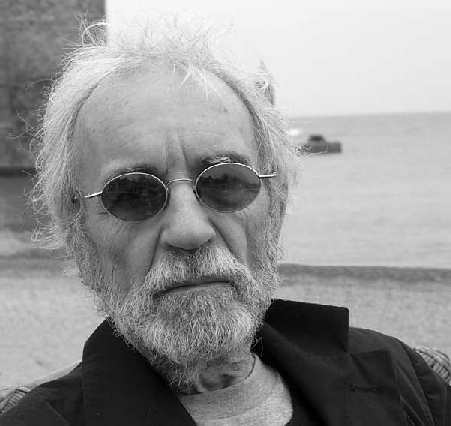
Campbell Armstrong
(1944–2013) Author
Campbell Black was born Thomas Campbell Black in Govan and attended Golfhill Primary School and Whitehill Senior Secondary School in Dennistoun. He graduated with a degree in Philosophy from the University of Sussex, England. He taught creative writing from 1971-74 at the State University of New York at Oswego; from 1975-78 he taught at Arizona State University. He worked for some years as a fiction editor with various London publishing houses. After living for many years in England and the United States, he moved to Shannon Harbour, Ireland. He died on 1 March 2013, four days after his 69th birthday.
His novels Assassins & Victims and The Punctual Rape won Scottish Arts Council Awards.The Last Darkness and White Rage were nominated for the Prix du Polar. His quartet of Glasgow novels consists of The Bad Fire, The Last Darkness, White Rage, and Butcher. He also wrote a memoir titled All That Really Matters, retitled in the United States as I Hope You Have a Good Life. His work has mainly been influenced by R L Stevenson and he ascribes a certain 'dark apect' of his writing to the opening scenes of Treasure Island. Among other influences he includes Kafka, Fred Vargas, Kobo Abe, and Camus. His books have been translated into French, German, Greek, Japanese, Italian, Hebrew and Polish.
Biography from wikipedia with additions and modifications
See also: Campbell Armstrong's Return to Glasgow
His website: http://www.campbellarmstrong.com/
Alexander Dennistoun
(1790-1874) Founder of the Glasgow district of Dennistoun
The eldest son of a successful merchant family. He went to New Orleans at the age of 30 and worked for the family business in the cotton trade. He returned to Britain and worked at the Liverpool branch before spending several years in France.
He returned to Glasgow after the French Revolution of 1830 and became the elected Liberal MP for Dumbarton in 1834. On the death of his father the following year he took up residence at Golfhill and became director of the Union Bank of Scotland.
From 1856 he purchased the neighbouring estates of Golfhill and employed the services of local architect James Salmon to draw up plans for the new suburb of Dennistoun where the first feus were given off in 1861.
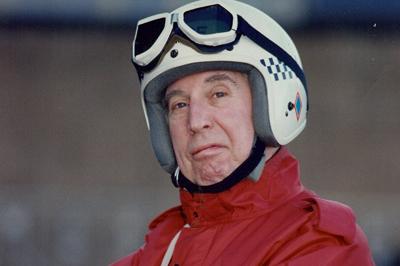
Rikki Fulton
(1924 - 2004) Actor
Rikki Fulton's parents married and set up home in a room and kitchen in 55 Walter Street. They bought a newsagent shop at 28 Roebank Street and purchased another some years later in Cumbernauld Road and for a short while lived in the back of the Roebank Street shop until moving to a room and kitchen at 46 Appin Road. It was in this top floor flat that Robert (Rikki) Fulton was born and raised in his first few years.
The youngest of three boys, he and his family later moved to Riddrie. He was a pupil at the local Riddrie primary school and then returned to Dennistoun as a pupil of Whitehill Secondary School. He left Whitehill in 1939 and his talent as a performer became evident during a turn of acting in the St. Andrews East Church Hall. He later volunteered at the age of 17 for the Navy in 1941 and almost lost his life when his ship the Ibis sank under enemy fire in the Mediterranean during the Second World War.
Rikki Fulton was compere to the big music bands, a voice on radio, and actor on stage and screen. Most notably he was one half of the Francie and Josie duo that continued for many years on stage and successfully carried over to television. He also performed in the comedy television program Scotch and Wry and the highly acclaimed film Gorky Park. His latest character, the despondent Reverend I. M. Jolly, would broadcast his melancholy remarks to the people of Scotland just before the beginning of a new year. Rikki Fulton received an honorary doctorates from St Andrews University June, 2000.
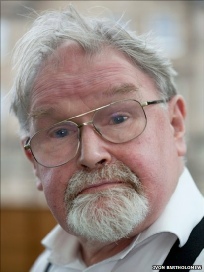
Alasdair Gray
(1934 - ) Artist / Author
Born in Glasgow and educated at Whitehill Secondary School he graduated from Glasgow School of Art in 1957 and taught there some five years later. A selection of his artwork is displayed at the People's Palace in Glasgow Green. He also published several plays and books:Lanark(1981), Janine (1982) and The Anthology of Prefaces(2000). His book Poor Things won the Whitbread Novel of the Year Award and "The Guardian" Fiction Prize. The Anthology of Prefaces(2000); Poor Things (1992); Something Leather(1991); Janine(1982); Lanark(1981).
See Also: Lanark 1982 (An unofficial Alasdair Gray website)
To see Alasdair’s participation while attending Whitehill click on the button below.
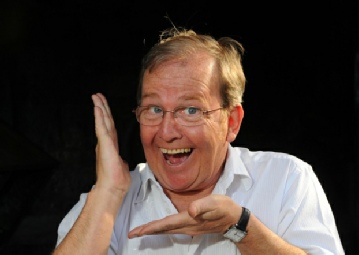
Ford Kiernan
(1962 - ) Actor / comedian
Born in Dennistoun and educated in Alexandra Parade Primary and Whitehill Secondary. As a young boy Ford washed cars for pocket-money and had fun with his impersonations, jokes and songs. On leaving school he tried his hand at everything; driving, labouring, bar work and tailoring. He worked in the popular clothing shops of the time in Glasgow including City Cash and Mann the Tailor. It was in marketing that he gained the confidence
required for stand-up comedy. Ford now brings to the television and stage his own brand of near-the-knuckle humour in Chewin' The Fat and Pulp Video. He has developed well known characters into household names such as Ronald Villiers, the worst actor in the world and Jack Jarvis in Still Game.
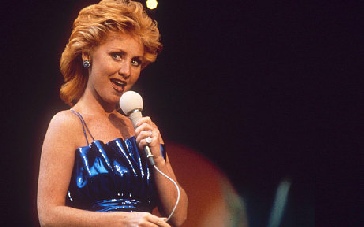
Lulu
(1948 - ) Singer
Born Marie McDonald McLaughlan Laurie in November 1948 she grew up in Garfield Street, Dennistoun, where her father worked in an abattoir and her mum worked in a bread shop. She is the eldest of four children, singing since the age of three, and publicly performing at the age of nine. She had a hit with Shout in 1964 and won the Eurovision song contest with Boom Bang-A Bang. She played Adrian Mole's mother on TV and got a guest spot on Morcombe and Wise and later in Absolutely Fabulous. She sang two movie themes, To Sir With Love for the film of the same name with Sidney Poitier and The Man With the Golden Gun, the James Bond film.
After two failed marriages she came back with a flourish with her 1993 song Independence. She has had 16 top 40 hits including her first ever number one with boy band Take That in 1993 with Relight My Fire. Latest film, Whatever happened to Harold Smith with Tom Courtney and has released a new album, Where the poor boys dance, co-written with her brother Billy. She was main anchor in Red Alert the television program that precedes the UK national lottery game. Received the OBE in the Queen's birthday honours list 2000.
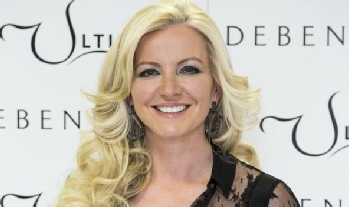
Lady Michelle Mone of Mayfair OBE
(1972- ) Entrepreneur
Born and raised in Dennistoun she attended Whitehill Secondary School. Founder of Govan-based MJM International now has a turnover of £3 million (BP) per annum. She left Whitehill Secondary School at the age of 15 and always had burning ambitions to be her own boss. Model turned business accounts manager she set up her company in 1998 after being made redundant.
Lady Michelle Mone of Mayfair OBE, is the is the founder of Ultimo Brands International, the UK’s leading designer lingerie brand. Listed as one of the top three female entrepreneurs in the UK, Michelle has built a hugely successful career on an incredibly simple concept: giving today’s women what they want. Her vision is to “help women to look and feel their very best”. It was upon that simple concept Baroness Mone built her career and influence, being honoured with a Life Peerage to the House of Lords by the Prime Minister and an OBE from Her Majesty the Queen for her outstanding contributions to business.
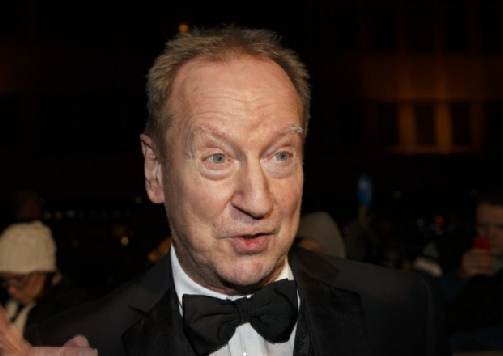
Bill Patterson
Bill Paterson was born on June 3, 1945 in Glasgow, Scotland. He attended Whitehill School during the 1960's. He is an actor and writer, known for The Killing Fields (1984), The Witches (1990) and The Adventures of Baron Munchausen (1988). He is married to Hildegard Bechtler. They have two children.
Trained as a drama teacher at the Royal Scottish Academy of Music and Drama.
He was nominated for a Laurence Olivier Award in 1982, for his performance as "Schwekyk" in Bertolt Brecht's "Schwekyk in the Second World War", at the National Theatre.
Has worked on many voice-overs for documentaries such as Equinox, Horizon and Reputation. He has also worked extensively in radio, and has written and read his own stories for BBC Radio.
He played King James I in Will Shakespeare (1978) and his son, King Charles I, in The Return of the Musketeers (1989).
He appeared in the movie The Killing Fields (1984), with Law & Order (1990) US star, Sam Waterston.
He was awarded the Outstanding Contribution to Film & Television accolade at the 2015 British Academy Scotland Awards.
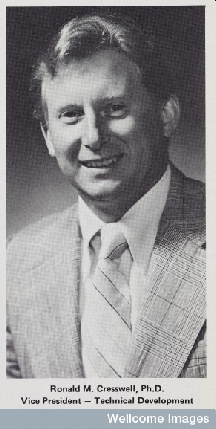
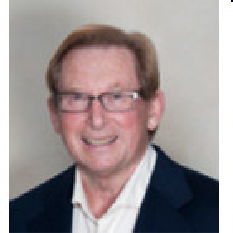
Dr. Ronald M Cresswell
Dr. Cresswell earned a bachelor's and a doctorate in applied chemistry from the University of Glasgow, and earned an A.M.P. from Harvard University and an Honorary Doctor of Science degree from the University of Strathclyde. The author of numerous publications, Dr. Cresswell is a member or fellow of many notable associations and societies, including the Royal Society of Edinburgh, the Royal Society of Chemistry, the Royal Society of Medicine, and the Royal Society of Arts and Commerce.
Dr. Cresswell held several senior level management positions with Warner-Lambert, including vice president and chairman of its Parke-Davis Pharmaceutical Research Division. Prior to this, Dr. Creswell held a 25-year career with the Wellcome Foundation, Ltd., serving in a variety of positions, including central coordinator for group research and development, and chairman and CEO of Coopers Animal Health Ltd.
Ronald Cresswell has been a great supporter of Whitehill Former Pupils Club and in 2012 was awarded FP Club “Achievement Award”
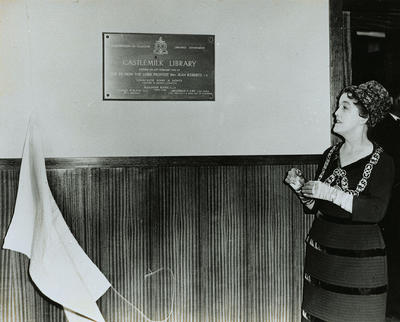
Dame Jean Roberts, Lord Provost of Glasgow.
Jean Barr MacDonald Roberts lived from 20 December 1895 to 26 March 1988. She was the first woman to serve as Lord Provost of Glasgow.
Jean Weir came from the Springburn area of Glasgow a centre for heavy industry and known especially for the manufacture of railway engines for export throughout the world. She was educated at Whitehill School ( 1907-). After leaving school she trained to be a teacher before taking up a post at the Bishop Street Elementary School. In 1922 she married Cameron Roberts, also a teacher, and they had a daughter together.
Jean Roberts was a socialist by outlook, and both she and her husband were members of the Independent Labour Party. In 1929 she stood for election to Glasgow Corporation as a councillor for the Kingston Ward, an area dominated by docks on the south side of the River Clyde. In 1933 the Labour Group on the Council gained control of the city, and Jean Roberts held a number of positions within the city administration. These included Senior Magistrate in 1936 and City Treasurer in 1952. She became leader of the Labour Group on the City Council in 1955.
In 1960, Jean Roberts became Lord Provost of Glasgow, a post for which she had been nominated a number of times since 1950. As the city's first female Lord Provost she was unique in Scotland until the 1980s.
She was made a Dame Commander of the British Empire (the female equivalent of a knighthood) in 1962.
She served as a Glasgow City Councillor until 1965, and subsequently became Chairman of the Cumbernauld Development Corporation, a post she held until 1972.
Dame Jean Roberts died in Glasgow in 1988.
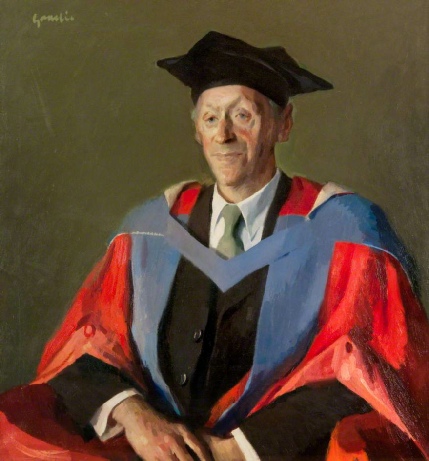
Sir David Stirling Anderson ( 1895-1981)
Sir David Anderson graduated Associate in Mechanical Engineering of the Royal Technical College, Glasgow in 1921, following service in the Royal Air Force, with the rank of 2nd Lieutenant, in 1918.
He obtained engineering experience with the North British Locomotive Company and with Fullerton, Hodgart and Barclay, then held several higher academic posts in Derby Technical College and Birmingham College of Technology, before becoming Director or Principal of the Royal Technical College, Glasgow from 1946-1959.
During his term of office discussions took place on the expansion of technological education in Britain, and the future development of the Royal College, which led eventually to the award of University Charter and the establishment of the University of Strathclyde in 1964.
Sir David was knighted in 1957 and received Honorary degrees from Glasgow University in 1961 and from Strathclyde in 1965.
He served as a member of the Robbins Committee on Higher Education and on many other professional bodies. He died on 18 January 1981.
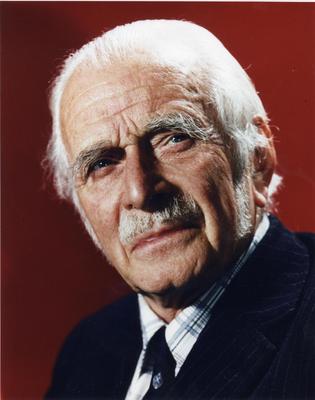
Sir William Weipers
Weipers was borne in Kilbirnie, Ayrshire. A son of the manse, he was educated at Whitehill Higher Grade School in Glasgow, and went on to graduate MRCVS from the Glasgow Veterinary College in 1925.
He went into general practice from 1925 until 1949, apart from a period of two years (1927 to 1929) when he became a member of staff of the Royal Vetinerary College. A pioneering small animal surgeon, he introduced closed circuit anaethesia to veterinary practice and was known for small animal orthopaedics.
When the private veterinary colleges were brought into the ambit of the university system, Weipers was made the first Director of Veterinary Education at the University of Glasgow (1949–1974); Professor of Veterinary Surgery from 1951 to 1974, and the Dean of the Glasgow Veterinary Faculty from 1969 until 1974. He supported the creation of a veterinary school which became renowned for teaching and research. He was knighted in 1966 for his services to Veterinary Education.
Among students of Weipers were James W Black and veterinarians such as Sir James Armour, Professor WFH Jarrett FRS, Professor RJ Roberts FRSE and Professor M Murray FRSE. All of them presented the Weipers Memorial Lecture, a biennial talk at the University of Glasgow.
On his retirement Weipers devoted time to arboriculture but also played a role in the establishment of academic aquaculture, as chairman of the management committee of the Nuffield Institute of Aquaculture, at the University of Stirling. For this work he was awarded the honorary degree of Doctor of the University in 1978. He was later awarded the honorary degree of Doctor of Veterinary Medicine and Surgery by his alma mater (1982).
Weipers died in 1990 at the age of 86.
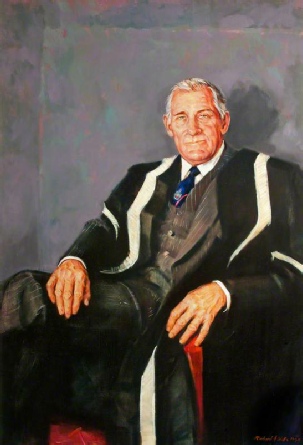
Professor Sir Herbert Livingston Duthie.
Herbert L. Duthie was born in Glasgow on 9th October 1929 and attended Whitehill School during the years of the Second World War. He was school captain 1946-47. Herbert attended Glasgow University and graduated MB, ChB in 1952, with further advanced degrees in 1959 and 1962. ( see Magazine Summer 1963) He served in the RAMC from 1954 to 1956 and held several posts at Glasgow Western Infirmary and in 1959 took up the Rockefeller Travelling Fellow post at the Mayo Clinic in the USA. Returning to the UK in 1960 he lectured in surgery at Glasgow and Leeds and was appointed professor of Surgery at Sheffield University a post he held from 1964 until 1979. In 1979 he was appointed Provost of the University of Wales, College of Medicine, which position he held until 1994. He received his knighthood in 1987.
Professor Duthie published numerous important medical and surgical papers, chaired and took part in committee activities, both monitoring and managing the profession and in the advancement of medical and surgical practices.
Herbert L. Duthie died on 24th April, 2014 at his home in Cheltenham, Glos.
C.J.Fordyce
Christian James Fordyce (1901-1974) was a graduate of the University who was Professor of Humanity, 1934 to 1971. He was Clerk of Senate from 1940 to 1971 and Dean of Faculties in 1973.
Born in Fraserburgh, Fordyce studied at the University as a Forfar Bursar and later as a Sandford Scholar in Greek. He graduated MA in Classics with first class honours in 1920, and won the Thomas Logan Medal in 1921. In 1920 he went to Balliol College, Oxford as a Snell Exhibitioner and Newlands Scholar and became one of that University's most distinguished classical students.
Fordyce was appointed War Memorial Research Student in Classics at Balliol in 1925, moving to St Andrews later in the year as a lecturer in Greek, then to Edinburgh to lecture in Humanity, and to Oxford as Fellow, Classical Tutor and Librarian at Jesus College. He came back to Glasgow in 1934 on his appointment to the Chair of Humanity. According to the Glasgow Herald, he was described in 1962 as "a powerful advocate and formidable opponent in debate, and the greatest living expert on the ordinances and regulations of the Scottish universities".
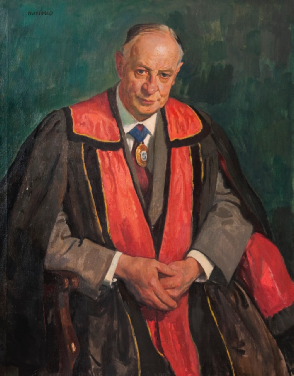
Professor Joseph H. Wright
Joseph Wright (1899–1990) gained his medical education at the University of Glasgow and became a Fellow of the Royal Faculty of Physicians and Surgeons of Glasgow in 1932. Until his retirement in 1964, he was Senior Consultant Physician at Glasgow Royal Infirmary and for many years a Clinical Lecturer at the University of Glasgow. He was President of the Royal Faculty of Physicians and Surgeons of Glasgow from 1960 to 1962 when the Royal Faculty became a Royal College.
Sir JOHN TAYLOR, C.I.E., D.S.O., M.D., LL.D. D.P.H.
John Taylor graduated from the University of Glasgow MB in 1905 and MD in 1913. He was born on the 14 February 1884 in Glasgow. His father was William Taylor, a dental surgeon. He first matriculated at the University in 1901 to study for a medical degree. Whilst at University, Taylor had a highly successful academic career, winning prizes in subjects such as Clinical Surgery, Clinical Medicine and the Practice of Medicine.
After graduating, Taylor completed two years of military service in India. He then worked for the Haffkine Institute in Bombay, a biomedical research institute. During this time researched the development of the bubonic plague in India.
Taylor then returned to his military duties from 1914 to 1920, and was frequently mentioned in dispatches. After his service he moved to Burma to join the Pasteur Institute, working in general bacteriology and pathology research. In 1932 he was appointed as the new director of the Central Research institute, Kasauli, a position which he held for the next 12 years. During this period Taylor undertook research on snakes and snake venom and refining anti-venom serum.
In addition to his research, Taylor was also the editor of the Indian Journal of Medical Research, and sat on various Army Pathology Advisory Committees in India. He also played a key role in developing legislation surrounding the manufacture and sale of biological products in India. Taylor partially set up a biological standards laboratory at the Central Research Institute in India and assisted with drafting Drugs Act legislation. He retired from India in 1944 and worked part time for the Medical Research Council.
Taylor held various titles throughout his career, receiving his knighthood in 1942 having been promoted successively to colonel and major-general while at Kasauli. He served as Honorary Surgeon to the King from 1939 to 1941 and Honorary Surgeon to the Viceroy from 1936 to 1941. In 1945 he was awarded an LLD from the University of Glasgow.
Original Source: Glasgow Herald, Report on Whitehill School Jubilee, Sept24, 1948
Above : Glasgow University Online Archive.